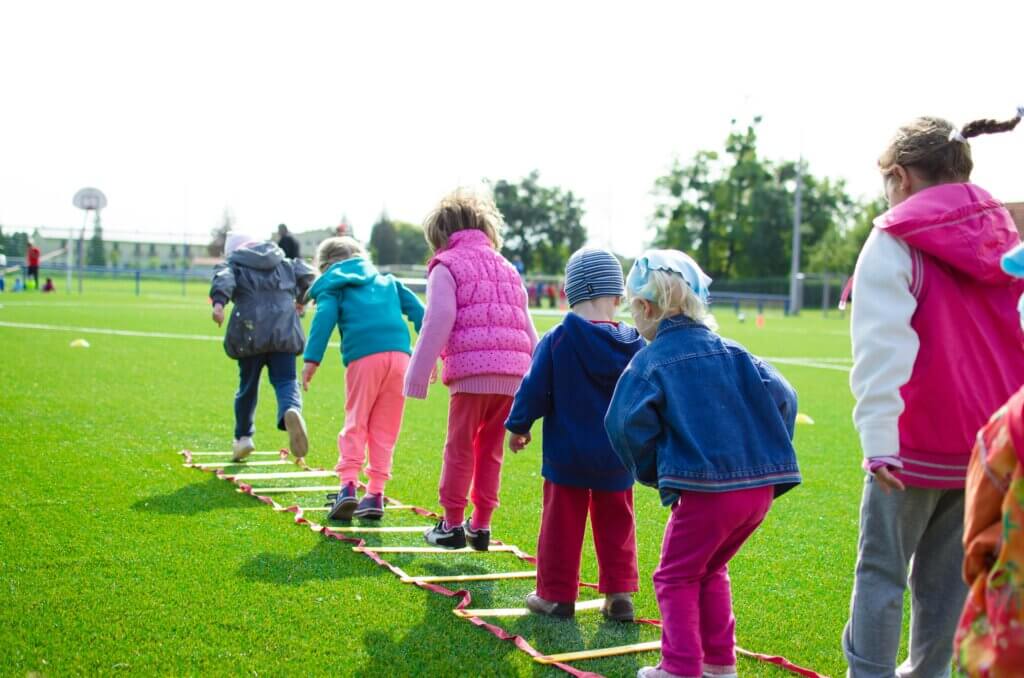
It’s a time to recognize the growing issue of childhood obesity and work towards actionable solutions for helping younger generations live healthier and more active lives. Learn more about this issue and how to help raise awareness and make positive changes with the kids in your life.
Causes of Childhood Obesity
Childhood obesity is often a complex issue with a combination of factors contributing to its development. These factors primarily fall into three categories: genetic, environmental, and behavioral.
- Genetic factors: Certain children are more predisposed to gaining weight due to their genetic makeup or may have genetic disorders that can cause excessive weight gain or obesity.
- Environmental factors: Readily available high-calorie and low-nutrient food, living in a neighborhood where it’s unsafe to be physically active, and lack of access to fresh fruits and vegetables can all contribute to an increase in child obesity rates.
- Behavioral factors: Sedentary activities like watching television or playing video games for extended periods, coupled with unhealthy eating habits like consuming sugary beverages or eating fast food regularly, can lead to excessive weight gain, as can lack of sleep.
Effects of Childhood Obesity
Childhood obesity can have far-reaching consequences, both in physical health and mental well-being.
- Physical health consequences: Obese children are at risk for a variety of health problems that can extend into adulthood, like diabetes, heart disease, high blood pressure, and even certain types of cancer. Childhood obesity can also lead to bone and joint problems, sleep apnea, and premature onset of puberty.
- Psychological and emotional effects: Beyond physical health, obesity can also impact children’s mental and emotional well-being. Social stigmatization, low self-esteem, depression, and anxiety disorders are common among children and adolescents struggling with obesity.
Prevention of Childhood Obesity
Adequate prevention strategies are the key to combating childhood obesity.
- Start by encouraging children to consume a balanced diet consisting of fresh fruits, vegetables, lean proteins, whole grains, and low-fat dairy while limiting consumption of added sugars and overly processed, pre-packaged foods.
- To stay active, kids should engage in at least an hour of moderate-intensity exercise most days of the week, such as walking, swimming, biking, or playing a sport.
- Parents and caregivers should also set a good example since adults’ actions play a big role in shaping a child’s eating and physical activity habits.
Treatment Options for Childhood Obesity
Interventions often focus on behavior changes, including diet modification and increasing physical activity. Cognitive-behavioral therapy can also be beneficial in changing the child’s relationship with food and physical activity. In some cases, medical intervention can be necessary to combat childhood obesity.
Zoe Primary Care’s Approach to Childhood Obesity
At Zoe Primary Care, each child’s situation is evaluated thoroughly through medical history evaluations and lifestyle assessments. Based on the assessment, a personalized treatment plan is created, which focuses on lifestyle modifications, regular follow-ups to monitor progress, and referrals to other specialists (if needed). We also provide various educational resources to empower parents/guardians with the right knowledge and skills to model healthier lifestyles and to help their children.
Tackle Childhood Obesity in September for a Healthier Future
Addressing obesity in children is an important job for adults, considering the physical, psychological, and emotional toll it takes. It’s not just about weight; it’s about healthier and happier futures. Zoe Primary Care is committed to helping children combat obesity. We provide comprehensive assessments, personalized treatment plans, and ongoing support to ensure successful results. Let’s work together to help your child live a healthier and more energetic life!










